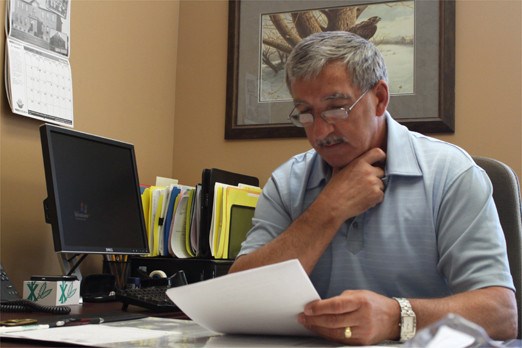School is more than being able to pass a standardized test, says a local teacher's union president.
Elementary Teachers Federation of Ontario’s Lakehead local president Ellen Chambers said she absolutely supports the call from the union – that represents 76,000 teachers in the province – to put a two-year moratorium on the Education Quality and Accountability Office’s Grade 3 and 6 standardized testing in literacy and numeracy in order to seek public consultation on the value of the system.
“It truly is not necessary to determine how children are doing and only deals with literacy and mathematics,” said Chambers. “Not that literacy isn’t fundamentally the most important thing, but what it does in the classroom is we literally are always preparing to teach for a test and the curriculum is far more broad than that.”
Teachers are also required to specifically teach children how to answer questions the way the test has them formulated, she added.
The EQAO test costs about $32 million to administer to 125,000 Grade 3 students and 136,000 Grade 6s per year, which is money the ETFO said could be better spent in other areas like helping the children who are struggling or dealing with effects of poverty in the classroom.
The focus on literacy and math also leaves little to no room for the arts once social sciences and other subjects are squeezed in, Chambers said.
“It’s really, really sad,” she said. “It’s like a box that’s tightening and tightening.”
Lakehead Public Schools director of education Cathi Siemieniuk said although they use the EQAO results to see where they fall within the province, the board believes teachers are the first and best judges of a student’s progress.
“Although (the EQAO) play a critical part in helping us get a picture of our system, it would not change the classroom practices that help students enhance their learning,” she said. “The assessments for and of learning would still continue.”
Living in an era of public accountability, Siemieniuk said the testing is valuable to the general public so they can ensure students are learning continuously and the money spent in schools is being spent wisely.
“I believe we owe that to our public to ensure that’s happening for all of our students,” she said.
Siemieniuk added she believes all children need a well-rounded education and her experience with the EQAO is they do try to integrate the sciences into the tests and Thunder Bay Catholic District School Board director of education John De Faveri said when the tests were introduced more than 10 years ago, there were some problems in the administration and timing of the tests as well as the link to the provincial curriculum, but that has all since been adjusted.
“I think they’re a valid part of the ongoing assessment we do for our students,” he said. “We know they are a snapshot in time but I do believe there is great validity and reliability in what they’re able to tell us from a provincial perspective.”
For many teachers, the results should be seen as a validation for their hard work, De Faveri said, noting he believes most school boards would be missing critical data if the tests were scrapped.
The criticism of the testing taking away from subjects like history, geography and science is somewhat flawed in its logic, he added.
“Reading and writing and arithmetic have been part of what’s essential for anyone to succeed,” De Faveri said. “It’s pretty hard for you to get a good understanding of a history textbook if you don’t know how to read.”
With the testing taking up three half-days near the end of the school year, union officials say the anxiety is high for students entering Grades 3 and 6 knowing it is a testing year.
“As a teacher what you have to do is try to ameliorate that,” Chambers said. “You have children coming into your class that are anxious for a full year about a test. I hardly think that’s a very good learning environment for children. Teachers do their very best but it’s truly hard to counteract that.”
Both Siemieniuk and De Faveri said their teachers try to make the testing days seem like regular days to alleviate that stress; the tests have to become part of the norm for students.
The ETFO isn’t calling for an end to testing altogether; Chambers said they do need assessment practices in place, but the two-year moratorium would be used to find a more reasonable way to do it by studying the current tests and working together.
“Testing is to determine what the needs of children are and where we need to go with that,” she said. “We still have to always do that but the effect of the Grade 3 and Grade 6 testing on our schools has not been the best thing, in our opinion, for education.”
